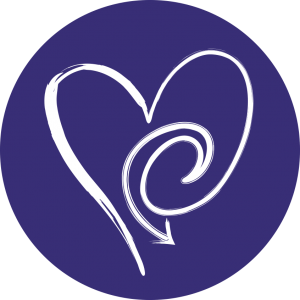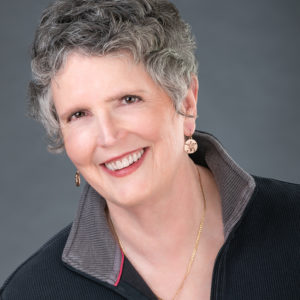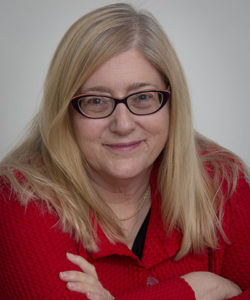Making the Rounds: Defying Norms in Love and Medicine
In 2022 we featured guest essays by several women memoirists. These blogs are windows onto lives lived in parallel with ours. Billie Best gave her perspective on caring for a dying philanderer when she wrote about her book, How I Made a Huge Mess of My Life, or Couples Therapy with a Dead Man. Carolyn Arnold shared the genesis of her memoir, Fifty First Dates After Fifty. Eleanor Vincent wrote about her history of a marriage, Better Late: A Neurodiverse Love Story. Our first guest essay for 2023 is by Patricia Grayhall, a retired physician whose new memoir takes us back to the days when almost all doctors and medical students were male. Dr. Grayhall is also a lesbian writing about a time in our lives when being gay was far more stigmatized than it is now. Making the Rounds reminds us how far we have come, and how important it is to protect those gains.
While downsizing three years ago, I came across a box of journals and letters I hadn’t looked at in forty years.Who knows what you might find when you delve into the past? Perhaps some answers to questions that were unresolved or too painful to contemplate at the time. The past isn’t dead; it lives on inside of us and influences us in the present whether we are aware of it or not. As I contemplated my personal journey in the late 1960s and ‘70s—coming out as a lesbian, a woman training to become a doctor, having an illegal abortion—none approved by society—I realized that my story has relevance beyond the personal.
Many young people today do not know what it was like before Title IX, before Roe v. Wade, at a time when women were largely excluded from becoming physicians. My story is one our culture needs to hear, especially now. It is relevant not only to lesbian women and LGBTQ people but also to men and straight women who have never lived the burden of being told their passions amounted to “wrong feelings.” But even more so, my story is relevant to those marginalized people—gay, female, disabled, of color—who are struggling to fulfill dreams that others take for granted.
Until relatively recently, lesbians have written our diaries in code, burned our letters to each other, and our families have destroyed our materials after death—all to hide our homosexuality. Yet we have overcome multiple systems of oppression to lead amazing lives, often thriving despite little support from mainstream society. Writing about my coming-of-age journey arose from my belief that we need to tell our stories and document our lives to become part of a more complete history of humanity.
In my memoir I’ve written about an era of personal growth that does not show me in the best light. I was a flawed and complicated young woman, shaped by my family and the culture of the times. Who I was then will stay in a reader’s mind although now, decades later, I am a very different person.
While writing this memoir, I was tempted to comment on events in my youth from the perspective of the elder I’ve become: to expound on the importance of boundaries and trust in a loving relationship, to celebrate the enduring power of friendship, and to sound a warning not to undervalue and squander love in all its forms. Adding that perspective to a memoir portraying a slice of early life could have jarred the reader out of the fictive dream. I needed to remain in the confusion of youth and then show the transition to greater maturity. Writing my memoir from that youthful perspective gave me compassion for myself as I was then: a young woman struggling to fulfil needs and wants as best she could, employing the life skills she had at the time.
I wrote about life events that affected me deeply, some associated with shame. I had to confront my fear of humiliation and exposure. This fear was my greatest obstacle in writing about hard things and choosing to share them with the world.
Since most of my memoir deals with trying to figure out what I wanted and needed in a relationship in my late teens and twenties in a homophobic nation, my training to become a medical doctor becomes the background structure and obstacle to this quest. I explore the sexual nature of these relationships, some polyamorous, with occasional explicitly sexual scenes that serve the story. Being vulnerable on the page in this way produced great anxiety. In fact, a week before my book went to print, I panicked and called my editor to ask her to take out most of the sex scenes. She wisely said no; it would change the story entirely. I swallowed hard and agreed to keep them in.
I initially expected only older lesbians and some straight women who lived through the era before Roe and Title IX to be interested in reading my story. I did hope younger people would read it and feel inspired to pursue their dreams and live authentic lives. However, when I received a starred review from Kirkus Reviews and several other five-star reviews from straight early readers, I realized that my book has an audience beyond my expectations, probably because it reveals some universal truths.
However you define your sexuality, we all want to love and be loved. We all want friendship, to belong, and to do meaningful work. But when you come of age in a culture that says who you love and how you love is wrong, that you don’t belong, and that you cannot do the work that you want because you are the wrong sex or color, life can be very challenging. Under those circumstances, it is common to try to change who you are and who you love, and to relinquish your ambitions so you can belong. But when you do that you do irreparable harm to yourself and in your frustration may harm others. Despite the obstacles, I hope my book shows it is better to live an authentic life and pursue your dreams.
Of course, social conditions have changed dramatically for women and more recently for queer people. Today in Washington, I would not have to travel to Nogales, Mexico to have an illegal abortion at age 19 in someone’s bedroom. I would have greater access to birth control and safe options for care. That is very different in those states that now limit a woman’s right to control her own body and criminalize miscarriage and abortion.
The experience of becoming a physician has also changed dramatically. Since Title IX, women now comprise over 50% of medical school classes in the US rather than the 5% in my class. Women now have female role models as professors and physician mentors in residency training. With more female physicians the culture of medicine (and patient outcomes) has changed for the better. The good news for older women is that Medicare data shows patients of women physicians have fewer hospitalizations and lower mortality rates.
In at least part of the United States, queer youth now have more support from trusted adults, and parents are less fearful for their future. We see people like us in the media who are not living tortured, miserable lives and don’t have to die or go back to the opposite gender at the end of the story. There are more opportunities to meet others outside of the bar scene. We can now marry those we love.
Finally, I now have the freedom to write my story and have it published without fear of major loss. My experience as a woman, as a lesbian, and as a woman physician can become part of a more complete history of our shared humanity.
So I did not burn those letters and journals as I had originally intended. Writing my memoir helped me see the patterns in my early life and to find compassion for my younger self. As Brene Brown once said, “One day you will tell the story of how you overcame what you went through and it will be someone else’s survival guide.”



2 Responses
Patricia’s guest post is a wonderful summary of her book. I highly recommend reading Making the Rounds. We’ve come a long way since Patricia’s medical internship, but there remains much more to be done for and by the LGBTQ community.
Brilliant article by Patricia Grayhall…
She writes with such courage, bravery and passion, has a fierce intellect and is compassionate.
Thank you for this article.